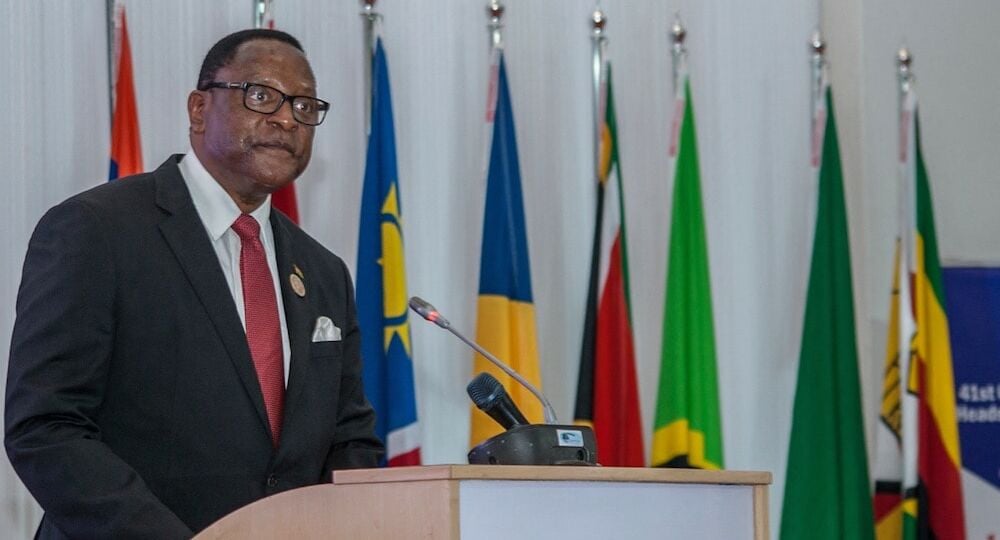
This statement was originally published on IFEX.ORG website on 20 September 2021.
“Your Excellency, we wish to reiterate that a free and secure media is needed to support SADC’s Vision for 2050”.
MISA has written to SADC regarding attacks on the media which have included arbitrary arrests and detention, physical assaults, crippling fines, closure of media houses, enforced disappearances, and the use of or introduction of laws that are inimical to freedom of expression. Below is the letter that was sent to His Excellency Elias Mpedi Magosi on 7 September 2021;
7 September 2021
His Excellency Elias Mpedi Magosi
SADC Executive Secretary
SADC House
Plot No. 54385, Central Business District
Gaborone
BOTSWANA
RE: FREEDOM OF EXPRESSION AND OF THE MEDIA IN SOUTHERN AFRICA
The above matter refers.
The Media Institute of Southern Africa (MISA), by virtue of this letter, proffers its sincere greetings and compliments to you on your elevation to the post of SADC Executive Secretary.
Your elevation to the position comes at a critical time for both the Southern African region and the African continent as a whole, particularly in terms of the media freedom environment and the safety and security of journalists.
SADC’s Vision for 2050 is for the region to remain peaceful and stable, thus enabling the further prioritisation, pursuit and achievement of its objectives of socio-economic development, poverty eradication and regional integration.
Your Excellency, we wish to reiterate that a free and secure media is needed to support SADC’s Vision for 2050.
However, the past 18 months have shown how the media in Southern Africa continues to be vulnerable to attacks through arbitrary arrests and detention, physical assaults, crippling fines, closure of media houses, enforced disappearances, use of, or introduction of laws that are inimical to freedom of expression.
Your Excellency, let me also take this opportunity to bring to your attention, key issues that we are grappling with as a region as far as freedom of expression, access to information and media freedom are concerned.
These issues, which are of great concern to us, pertaining to the disappearance of Azory Gwanda of Tanzania, and Ibraimo Mbaruco of Mozambique; the continued persecution of Hopewell Chin’ono in Zimbabwe, and persecution of Eswatini journalists Eugene Dube and Zweli Dlamini, and the general targeting of journalists in that country, and the state of insecurity in northern Mozambique.
Furthermore, we are worried by the propensity of Southern African countries to introduce purported cyber security laws that have a chilling effect on media freedom and freedom of expression. Lesotho, Tanzania and Zambia, have introduced such cyber security laws.
These laws fall far short of regional and international standards and instruments on human rights such as the African Union Convention on Cyber Security and Personal Data Protection (Malabo Convention), which sets the standards for cyber security and personal data protection laws as well as capacity building, knowledge exchanges and experience sharing, among signatories.
In addition, Zimbabwe is in the process of enacting such a law, which will have a grave impact on freedom of expression and of the media.
In February this year, Citizen Lab, a Toronto-based research organisation, conducted research on the use of spyware. It detected that there were seven African countries using the Circles spyware to snoop on citizens’ communications.
Zimbabwe, Zambia and Botswana are among the seven African countries from SADC that were identified as using the Cycles spyware. This is in violation of both domestic laws and the African Commission on Human and Peoples’ Rights (ACHPR) frameworks that protect the right to privacy.
Your Excellency, another cause for great concern is the propensity of Southern African governments to resort to fake news laws.
MISA is concerned with the seeming regional consensus on the need to snoop on the Internet without much attention and due regard to the enjoyment of fundamental human rights, particularly the protection of citizens’ right to privacy.
Your Excellency, equally worrying is the reflex by Southern African member states to internet shutdowns, disruption, and throttling, especially when citizens petition through demonstrations and during elections. This was the case in the Democratic Republic of Congo (DRC), Eswatini, Tanzania, Zambia, and Zimbabwe.
Further, the fake news regulations which started with South Africa, triggered similar laws in Botswana, Zambia, Eswatini and Namibia, among others.
With this in mind, and through your able leadership, MISA calls on regional governments to take all necessary measures to guarantee the safety and security of journalists. The media can only play its role in promoting sustainable development and regional integration if it is allowed to operate freely.
In addition, MISA urges SADC governments to ensure that the region’s cyber security regulations are informed and guided by the revised principles of the ACHPR Declaration of Principles on Freedom of Expression and Access to Information which recognises the Internet as a fundamental right.
In cases where countries have developed repressive legislation and regulations against fake news following the COVID-19 outbreak, MISA requests for a roadmap on when these laws will be repealed.
SADC member states could emulate and take a cue from Namibia and Ghana, notwithstanding other challenges, which are ranked at number one and two on the continent; and 24 and 30 respectively, on the global scale by the Reporters without Borders (RSF) 2021 World Press Freedom Index.
Your Excellency, MISA remains open to constructive engagement with the Governments of Southern Africa, through the SADC Secretariat, and is more than willing to share and offer its expertise on these issues that require immediate attention.
We look forward to hearing from you and engaging with you more on the work we are doing to promote media freedom, freedom of expression and access to information in Southern Africa.
Yours Sincerely,
Golden Maunganidze
Regional Governing Council Chairperson
